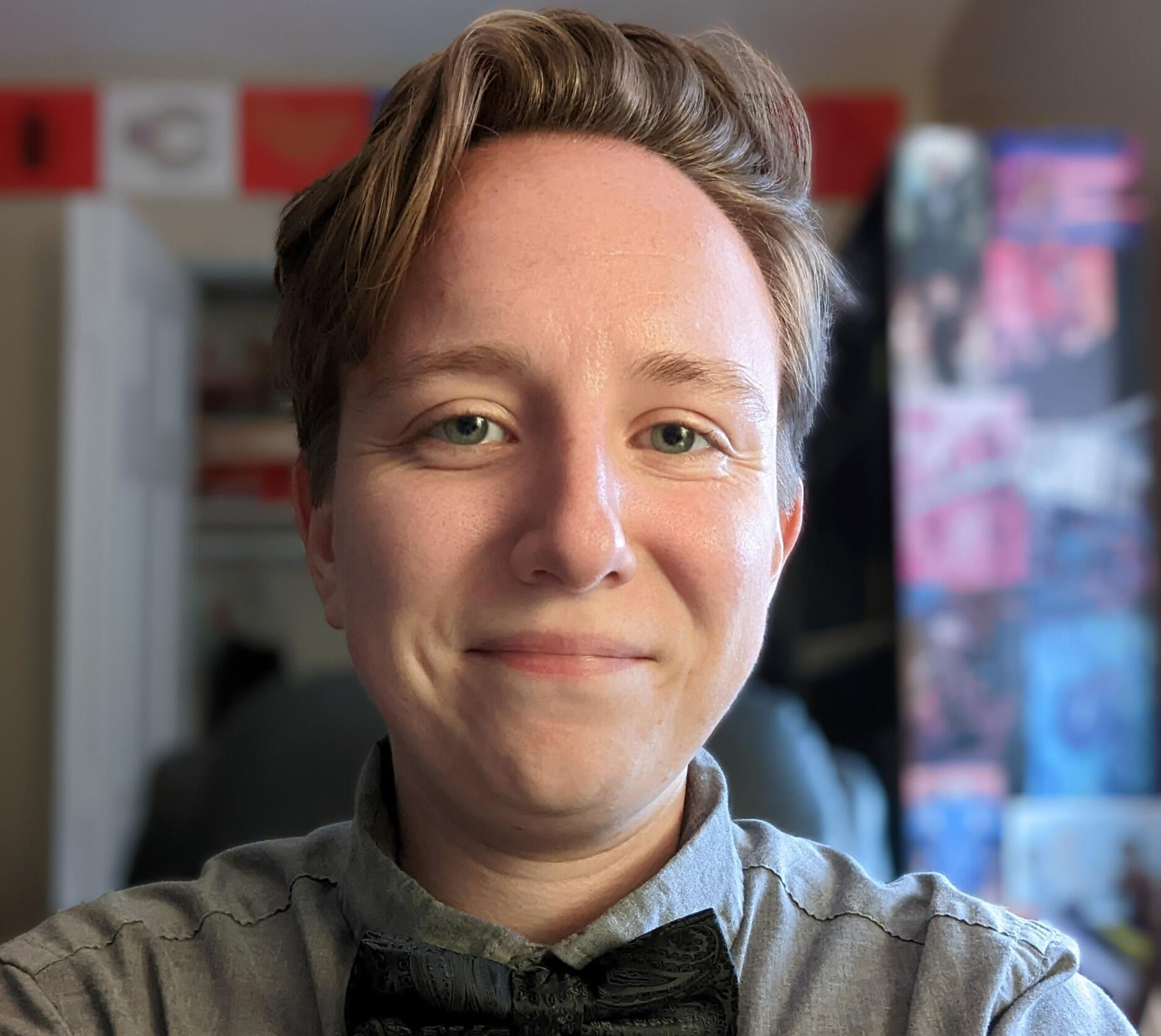
May 7, 2024
Class of 2024: Angela Matijczak explores family, pets and LGBTQIA+ mental health
Relationships and gender affirmation have intrigued the master’s and Ph.D. student, who begins a professorship in Wisconsin this summer.
Share this story
LGBTQIA+ youth and their relationships with pets and family are the main components of Angela Matijczak’s research in recent years.
“I think that generally most people would agree the relationship you have with family members are the most important relationships you have. Your pets are part of your daily routine. Both of those are bound to have an effect on mental health in the LGBTQ+ population,” said Matijczak, who graduates this month with both her master’s degree and Ph.D. in social work from Virginia Commonwealth University’s School of Social Work. “It’s important to be promoting mental health in this population. We want to help them be their most happy, joyful self.”
Her dissertation looks at relationships that transgender and gender-diverse young adults of color have with family members and how those relationships can be affirming, or not, of their gender.
Matijczak has long been intrigued by the human brain and why people make the decisions they make. She began cultivating an interest in social work while earning her bachelor’s degree in psychology from the University of New Haven in Connecticut.
“I like helping people on a broader scale,” she said.
After graduating, she worked in a research lab where she looked at the benefits of therapy dogs. That research sparked her interest in if and how pets can be beneficial as a coping mechanism for mental health.
At VCU, Matijczak co-authored a study led by Shelby McDonald, Ph.D., a former associate professor in the School of Social Work who is now working for the Denver Zoological Foundation, on how pet ownership and interactions can provide benefits that may help LGBTQIA+ young adults cope with stress and improve their mental health.
The results of the study and other similar studies they conducted were mixed.
“In some of the studies, we found that a strong attachment to pets associated with higher rates of resilience with LGBTQ+ youth. It could help them cope with bullying, discrimination and living in a family not affirming of them. It helps them see themselves more positively,” Matijczak said. “In other studies, being highly attached to pets showed higher rates of depression. It’s complicated.”
Matijczak, a Connecticut native, was drawn to VCU by the research and studies conducted by faculty in the School of Social Work. Its combined master’s and Ph.D. program was also a lure.
“It was really impactful and centered on the community,” she said of the program. “VCU has a fantastic, highly ranked social work program.”
This summer, Matijczak starts her position as an assistant professor at the University of Wisconsin in Milwaukee. She hopes to continue doing research related to families and pets.
She has high praise for her mentors at the School of Social Work, including associate professors Maurice Gattis, Ph.D., and Alex Wagaman, Ph.D. and assistant professor Jacob Goffnet, Ph.D.
“They have been supportive of my creativity and my dissertation research,” Matijczak said. “They were also supportive in my education and getting my job in Wisconsin. They have been fantastic.”
Subscribe to VCU News
Subscribe to VCU News at newsletter.vcu.edu and receive a selection of stories, videos, photos, news clips and event listings in your inbox.












